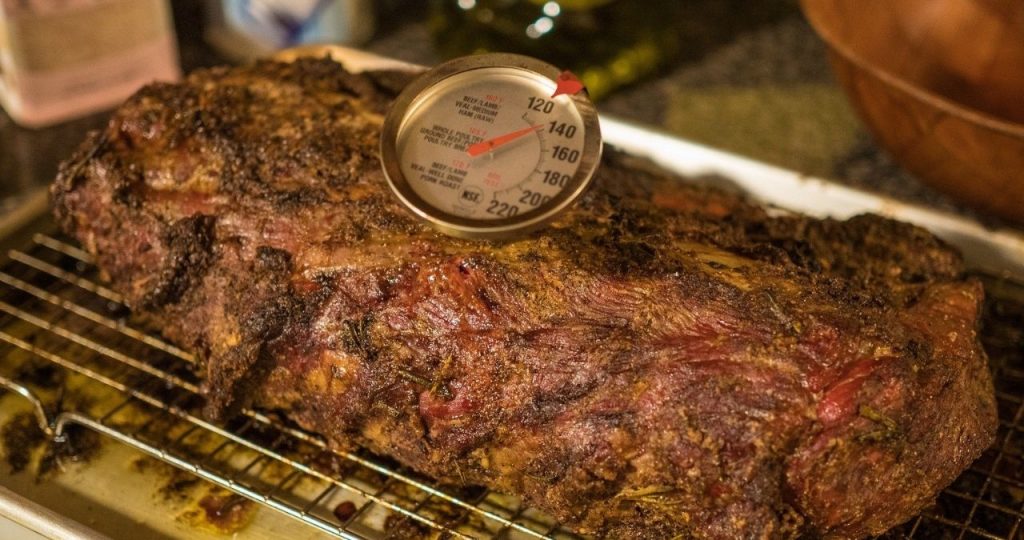When it comes to food and nutrition, there are many ideas handed over to us that have been circulated throughout the years. When it comes to food storage, no one likes buying food items only to have them quickly go bad because they weren’t stored properly. Let’s discuss and familiarize ourselves with some common refrigerated food myths.
Common Refrigerated Food Myths
Myth 1: Cool hot food before refrigerating
It’s not true that you need to wait for your hot food to cool down to room temperature before chilling it. You can instantly put large amounts of food in the fridge such as a pot of soup or a whole chicken. If you’d like to chill them rapidly, you can divide them into smaller portions or put them in a leak-proof container in a large bowl of ice with a little water. Additionally, food shouldn’t be left out on the counter for more than two hours. When food is left out at room temperature it becomes more prone to bacterial growth. Therefore, to reduce your risk of food poisoning, it is important to make sure food is refrigerated immediately.
Myth 2: Leftovers are safe until they smell or look bad
There many different types of bacteria. Some forms of bacteria make you sick, while others don’t do any harm. Certain bacteria can make you sick without changing the smell, taste, or appearance of the food, making them hard to notice. It is recommended that you throw out leftover food that has been in the fridge for three or more days. Frozen leftovers remain safe for a longer time, but they lose flavor and texture after 3-4 months. Always use airtight packaging or containers, and write down the date the food is consumed or opened. If you are unsure how long your food has been in the fridge, don’t risk your health and throw it away.
Myth 3: It’s OK to eat cold leftovers
The recommendation is to heat food to at least 165 degrees Fahrenheit in order to eliminate all dangerous bacteria. You can measure the temperature by placing a food thermometer in the thickest area of your food. You will want to check this part of the food because the heat may not have been distributed evenly. By checking the thickest part you can guarantee that your food is hot enough.
Myth 4: Freezing food destroys bacteria
Freezing doesn’t kill bacteria. Instead, it just slows down bacterial growth. Bacteria can still survive in extremely low temperatures. Freezing is meant to help preserve your food for a longer period of time. However, freezing does not totally prevent the development of harmful microorganisms. Bacteria can also grow when you are thawing your food. The best way to kill bacteria is to cook your food thoroughly so that it reaches a high enough internal temperature.
Additional Source: Safe Minimum Cooking Temperatures Charts
Myth 5: You shouldn’t put raw food back in the freezer after being thawed
It’s fine to refreeze raw foods such as meat, poultry, seafood, and eggs if they were thawed in the fridge. However, do not refreeze food that was thawed on the counter. You should also avoid refreezing food if you thawed them using a microwave or cold water. These food items should be thoroughly cooked as soon as possible.
Myth 6: Not refrigerating eggs is fine
Leaving eggs on the counter is normal in most European countries. However, in the U.S., commercial eggs are power-washed prior to making their way to grocery stores. This removes any harmful bacteria, like salmonella, on the egg’s surface. However, this cleansing also strips the egg of its natural protective coating, called the cuticle. Power-washing eggs makes the shell weaker and more susceptible to contamination. Refrigeration prevents these porous eggs from soaking up a load of bacteria, increasing their shelf life from 21 days to up to 5 weeks. In the U.K., eggs aren’t power-washed, so they keep their protective coating. Instead, hens are vaccinated to prevent salmonella. While those in the U.K. and numerous other European countries might leave their eggs out on the counter–if you live in the U.S., you should always refrigerate your eggs.
Additional Source: Food Safety Tips
Cannonball Express Transportation
Cannonball Express Shipping Company has been providing top-of-the-line service at a reasonable rate. Based in Omaha, Nebraska, we provide nationwide refrigerated LTL services, as well as, local delivery services. Contact us today!
Nationwide Shipping Company Services:
- Refrigerated LTL deliveries in the lower 48 states
- Refrigerated Cross dock
Local Shipping Company Services:
- Redelivery Services
- Truckload & LTL Capabilities
- PUP
- Cross dock
- Transload
- Warehouse and Distribution capabilities from multiple Omaha Locations

